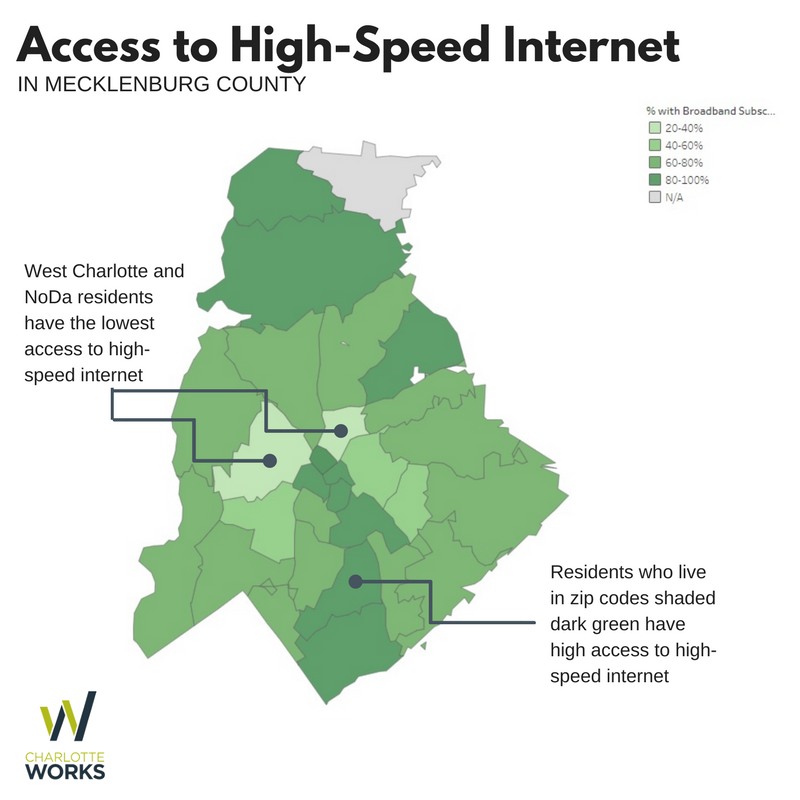
15 Feb Digital access is critical for Charlotte’s residents and its workforce system
Access to broadband internet is something we often take for granted. We rely so heavily on the internet at work, home and shopping that most of the population would consider it a necessity to live. But did you know that 13.2 percent of people in the Charlotte area live in neighborhoods with low or no access to broadband internet? That equates to approximately 317,000 people who can’t access high-speed internet in their own homes. This barrier impedes their ability to get information, stay connected with friends and family, search for employment and other everyday tasks. For children, lack of broadband internet can hinder their ability to do homework, turn in assignments or develop digital literacy skills. They fall behind their peers who do have access to high-speed internet, which can leave them economically disadvantaged over the long term. Just as important, this lack of access harms the development of our talent pipeline.
Our Community Poverty Indicators Digital Access map shows the distribution of high-speed internet access in Mecklenburg County. The zip codes in the darkest shade indicate that 80 to 100 percent of residents have access to broadband. Zip codes shaded in lighter green reflect zip codes where fewer residents have access to high-speed internet. Residents in West Charlotte and NoDa neighborhoods have the lowest access in the county.
Charlotte Works is addressing these gaps through our CARE3 program, which provides access to computers at community organizations in low-access areas. Our partner sites are equipped with computers and other workforce services to assist local career-seekers in registering on the statewide job-search portal, NCWorks Online, along with other services such as resume building workshops and job fairs. Charlotte Works is also a member of the Charlotte Digital Inclusion Alliance, a group of organizations that provide resources to residents to address inequality, poverty and digital access across the community.
As part of our Careers4All initiative, we’ll increase access to internet and workforce services by launching localized career services to areas of high unemployment. Unsurprisingly, the high unemployment zip codes overlap with those that have low access to broadband internet. Though our efforts will benefit career-seekers in these areas, it’s crucial that the community address the lack of broadband infrastructure in these neighborhoods so that everyone can access high-speed internet. The competitiveness of our region depends on it.



